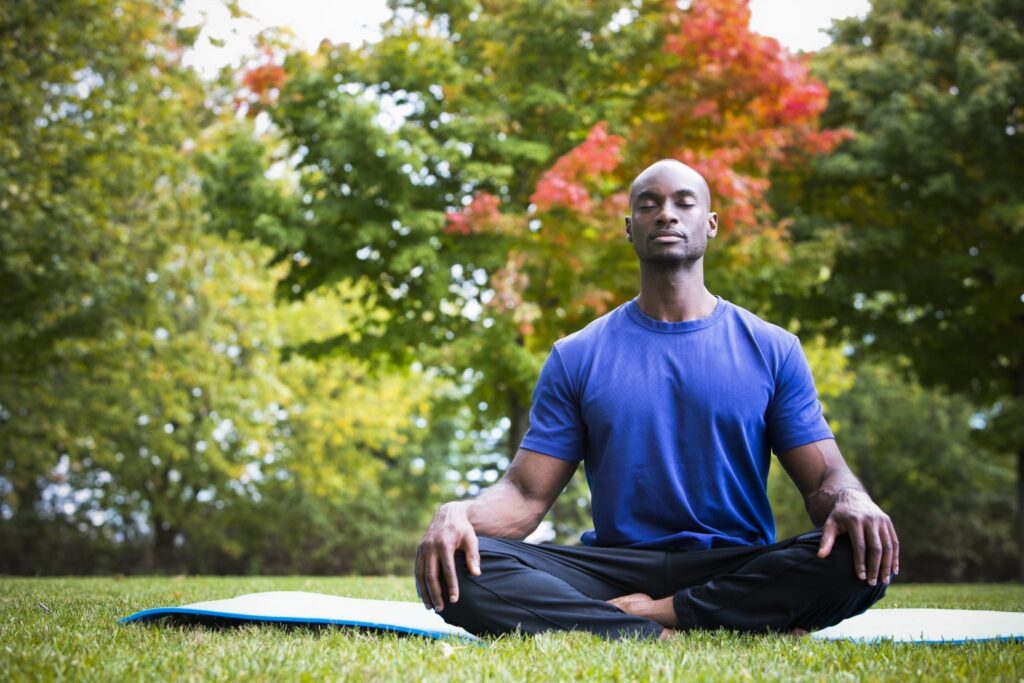Mental health and fitness are often thought of as two separate entities, but in reality, they go hand in hand. The benefits of physical exercise on mental health are well documented, yet there is still a stigma around mental health that can make it difficult for people to seek the help they need. By breaking down this stigma, we can encourage more people to prioritize their mental health and recognize the role that fitness can play in maintaining good mental health.

The Connection Between Mental Health and Fitness
It’s no secret that exercise has many physical benefits, such as improving cardiovascular health, building strength and endurance, and promoting weight loss. However, exercise also has a profound impact on mental health. Studies have shown that regular exercise can help to reduce symptoms of depression and anxiety, improve mood, and increase self-esteem.
One of the reasons that exercise is so beneficial for mental health is that it triggers the release of endorphins, which are natural feel-good chemicals in the brain. When you exercise, your body releases these endorphins, which can help to boost your mood and reduce feelings of stress and anxiety. Additionally, exercise can help to reduce the levels of stress hormones, such as cortisol, in the body, which can have a positive impact on mental health.
The Stigma Around Mental Health
Despite the many benefits of exercise on mental health, there is still a stigma around mental health that can make it difficult for people to seek help. The stigma around mental health is often based on myths and misconceptions about mental illness, such as the belief that it is a sign of weakness or that people with mental illness are dangerous or unpredictable.
This stigma can prevent people from seeking the help they need and can lead to feelings of shame and isolation. Additionally, the stigma around mental health can make it difficult for people to talk openly about their struggles with mental health, which can lead to feelings of loneliness and despair.
Breaking Down the Stigma
Breaking down the stigma around mental health requires a collective effort from all of us. It starts with educating ourselves and others about mental health and challenging the myths and misconceptions that contribute to the stigma. We can do this by sharing our own stories and experiences with mental health, talking openly and honestly about our struggles, and encouraging others to do the same.
In addition to educating ourselves and others about mental health, we can also take steps to prioritize our own mental health. This includes seeking professional help when needed, practicing self-care, and incorporating regular exercise into our daily routine. By prioritizing our own mental health, we can set an example for others and help to break down the stigma around mental health.

How Fitness Can Help Improve Mental Health
Incorporating regular exercise into your daily routine can have a profound impact on your mental health. Here are just a few ways that fitness can help to improve your mental health:
Reduces stress and anxiety: Exercise is a natural stress reliever and can help to reduce feelings of anxiety and tension.
Boosts self-esteem: Regular exercise can help to improve your self-esteem by promoting feelings of accomplishment and self-worth.
Increases social interaction: Participating in group fitness classes or sports can help to increase social interaction, which can help to reduce feelings of loneliness and isolation.
Improves mood: Exercise triggers the release of endorphins, which are natural feel-good chemicals in the brain. This can help to boost your mood and reduce feelings of depression.
Enhances brain function: Exercise has been shown to enhance brain function, improve memory, and increase cognitive function.
Incorporating Fitness into Your Mental Health Routine
If you’re struggling with mental health, incorporating regular exercise into your daily routine can be a powerful tool in your mental health arsenal. Here are a few tips to help you get started:
Start slow: If you’re new to exercise or haven’t been active in a while, start with low-intensity workouts such as walking or yoga. Gradually increase the intensity and duration of your workouts as you become more comfortable.
Find an activity you enjoy: Exercise doesn’t have to be a chore. Find an activity that you enjoy, whether it’s running, dancing, or playing sports. When you enjoy what you’re doing, you’re more likely to stick with it.
Set realistic goals: Set realistic goals for yourself and celebrate your accomplishments. Start with small goals and work your way up to bigger ones.
Prioritize self-care: In addition to exercise, prioritize other forms of self-care such as getting enough sleep, eating a healthy diet, and practicing mindfulness.
Seek professional help: If you’re struggling with mental health, don’t be afraid to seek professional help. A therapist or counselor can help you develop coping strategies and provide support as you work towards improving your mental health.
Final Thoughts Mental health and fitness go hand in hand, yet there is still a stigma around mental health that can make it difficult for people to prioritize their mental health. By breaking down this stigma and recognizing the benefits of exercise on mental health, we can encourage more people to incorporate fitness into their mental health routine. Whether you’re new to exercise or an experienced athlete, incorporating regular physical activity into your daily routine can have a profound impact on your mental health and overall well-being. Remember to prioritize self-care, set realistic goals, and seek professional help when needed. With the right mindset and support, you can achieve optimal mental and physical health.


